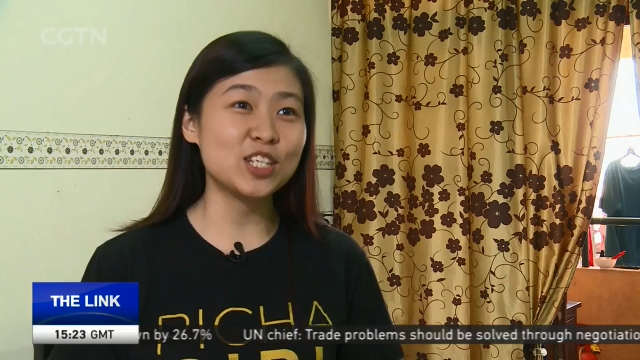
07:38, 14-Jul-2018
Picha Project: Three Malaysian women found initiative which supports refugee families
Updated
06:44, 17-Jul-2018
03:16

Today we head to Malaysia where three women are helping children who were forced to quit school in order to support their families. The Picha Project gives young refugees a chance to cook and sell dishes from their homeland. It's not only proving to be popular but it's also improving the lives of families struggling in a land which doesn't officially recognize the rights of refugees. Our Malaysian correspondent, Rian Maelzer spoke with the initiative's co-founders.
SUZANNE LING CO-FOUNDER, PICHA PROJECT "Me, Kim and Swee Lin met each other in university back in 2013, the three of us were volunteering in a refugee school. One day we realize that a lot of our kids are dropping out of school and we started visiting them at their house."
KIM LIM CO-FOUNDER, PICHA PROJECT "It's only then that we realized that they are having financial problems at home and the kids are forced to drop out of school to find ways to sustain their families."
In Malaysia, We have 154000 to date right now of registered refugees, and the unregistered ones probably the numbers are way higher and because we didn't sign the UN refugee convention, therefore, refugees are not allowed to work.
SUZANNE LING CO-FOUNDER, PICHA PROJECT "We started brainstorming on what kind of business can we start. And at that time we realized that all of these refugee families can actually cook amazing food why not we try to help them sell their food and earn an income. So that's how the idea came about."
KIM LIM CO-FOUNDER, PICHA PROJECT "They have to buy their ingredients around their area, and they just have to cook whatever they are really good at, and us the operations team, will work on the logistics and the marketing and the whole operations in terms of catering and equipment rental and everything and then we send the food to the corporates, we deliver it to them, we present it to them."
SUZANNE LING CO-FOUNDER, PICHA PROJECT "We are working with 10 families right now, they are from Syria, Afghanistan, Palestine, Myanmar and also Iraq. This is not just about business, it's also about raising awareness and spreading the story of the refugees to a larger crowd, so what we do is with every order on each meal boxes there's actually a story of the chef who made this food. we want to give a voice to them, because they are often not heard. After joining the Picha Project they have become financially stable. So far for 80 percent of our families, we are their only source of income."
KIM LIM CO-FOUNDER, PICHA PROJECT "We really want to reach out to 25-30 families by this year. And we really hope to be able to create a sustainable solution, effective system to be able to replicate to other countries."
SUZANNE LING CO-FOUNDER, PICHA PROJECT "All they want are very simple things. They just want safety for their children, education, a simple home to stay and that's really the awareness that we want to spread."
KIM LIM CO-FOUNDER, PICHA PROJECT "It's a sustainable solution and it actually gives back the dignity and the power to the voiceless."
KIM LIM CO-FOUNDER, PICHA PROJECT "I believe there are many other crises in the world, whether it's environmental, animals, or refugees or other humanitarian causes. We have to combine our power and work together to create sustainable solutions to the future because Picha alone can not help many people, but if all of us come together, we can help the world."

SITEMAP
Copyright © 2018 CGTN. Beijing ICP prepared NO.16065310-3
Copyright © 2018 CGTN. Beijing ICP prepared NO.16065310-3